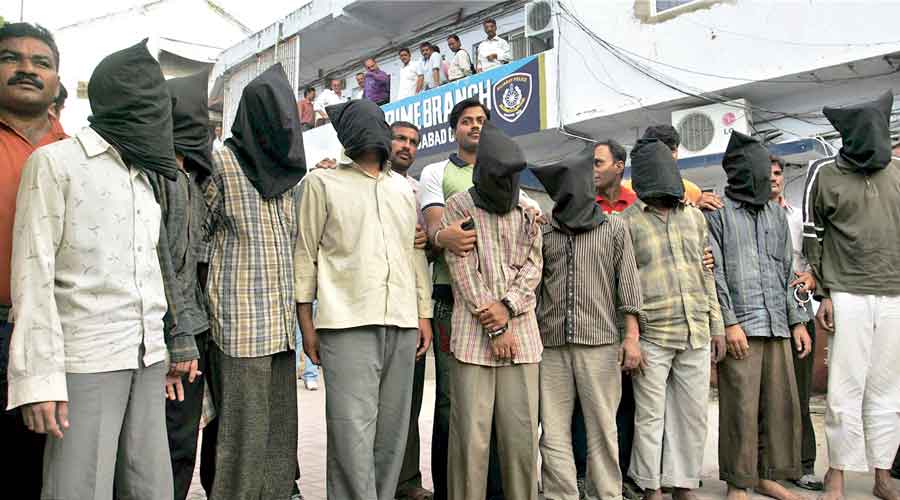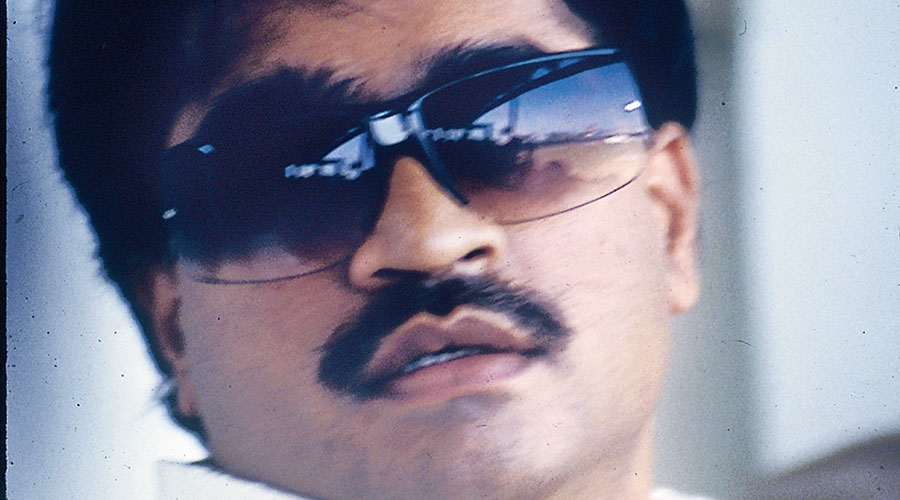A special court on Friday sentenced to death 38 members of the terror outfit Indian Mujahideen (IM) over the 2008 Ahmedabad serial blasts that claimed 56 lives and left over 200 injured.
Eleven other convicts have been sentenced to life imprisonment till death.
This is the first time so many convicts have been handed the death sentence by a court at one go. In January 1998, a Tada court in Tamil Nadu had sentenced to death all 26 convicted of the assassination of former Prime Minister Rajiv Gandhi in 1991.
The pronouncement of the quantum of punishment by judge A.R. Patel came 14 years after the Ahmedabad blasts.
The court had convicted 49 people and acquitted 28 others on February 8.
As many as 21 explosions had ripped through the Gujarat city on July 26, 2008, within a span of 70 minutes.
In the over-7,000-page judgment, the court termed the case “rarest of rare” and ordered that 38 convicts be hanged till death, while 11 others were given life imprisonment till death, public prosecutor Amit Patel told reporters in Ahmedabad.
While 38 were convicted under the Indian Penal Code (IPC) Sections 302 (murder) and 120B (criminal conspiracy) and provisions of the Unlawful Activities (Prevention) Act, 11 others were held guilty of criminal conspiracy and under various sections of the UAPA, he said.
The court imposed a fine of Rs 2.85 lakh on 48 convicts and Rs 2.88 lakh on another. It awarded compensation of Rs 1 lakh to the kin of each of those who died in the blasts, Rs 50,000 to those who were seriously injured and Rs 25,000 to those who suffered minor injuries.
Those sentenced to death include key conspirators Safdar Nagori and Qumaruddin Nagori from Madhya Pradesh and Qayumuddin Kapadiya, Zahid Shaikh and Shamsudding Sheikh from Gujarat. Safdar Nagori and Zahid Shaikh were accused of collecting funds for acquiring explosives and for other illegal activities of the banned outfit Students Islamic Movement of India (Simi). Kapadiya had acquired mobile phone SIM cards using fake documents and stayed in hotels using a fake identity.
All the convicts attended the hearing via video link from eight prisons, including Sabarmati central jail in Ahmedabad, Tihar jail in Delhi and detention centres in Bhopal, Gaya, Bangalore, Kerala and Mumbai.
Police had said members of the IM, a radicalised faction of Simi, were behind the blasts. The investigators had said the IM planned the blasts as revenge for the 2002 post-Godhra riots in Gujarat in which over 1,000 people, most of them Muslims, died.
Survivors and relatives of those killed in the blasts welcomed the court verdict.
College student Yash Vyas was nine years old when he suffered severe burn injuries after a bomb went off at the trauma ward of the civil hospital.
“My mother and I have been waiting for this day for the last 13 years. I am happy that the court gave the death penalty to 38 people responsible for killing innocent people, including my father and brother,” he said. “The court should have given the capital punishment to all the convicts,” said Yash, now a 22-year-old second-year science degree student.
The trial began in December 2009 against 78 people linked to the IM. One of them turned approver. The court concluded the trial against the 77 accused persons last September. Four more accused persons were arrested later but their trial has not commenced yet, a government lawyer said.
Bombs had exploded at various spots in Ahmedabad, including the state government-run civil hospital, the Ahmedabad Municipal Corporation-run LG Hospital, in buses, parked bicycles, cars and other places, killing 56 people. As many as 29 live bombs were found in Surat over the next couple of days, though none of them exploded.
The trial was conducted after the court merged 20 FIRs registered in Ahmedabad and 15 in Surat. The state government had transferred the investigation to the Ahmedabad crime branch, under the supervision of the then joint commissioner Ashish Bhatia, who is now the Gujarat DGP.
Nine judges presided over the case, starting with Bela Trivedi, in whose court charges were framed against the accused on February 15, 2010. Justice Trivedi is now a Supreme Court judge. Special judge Patel, who pronounced the judgment, started hearing the case on June 14, 2017.












